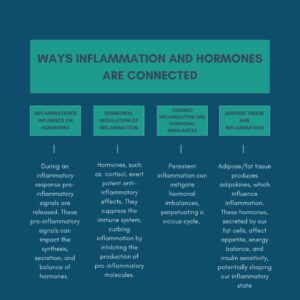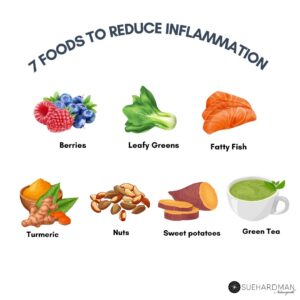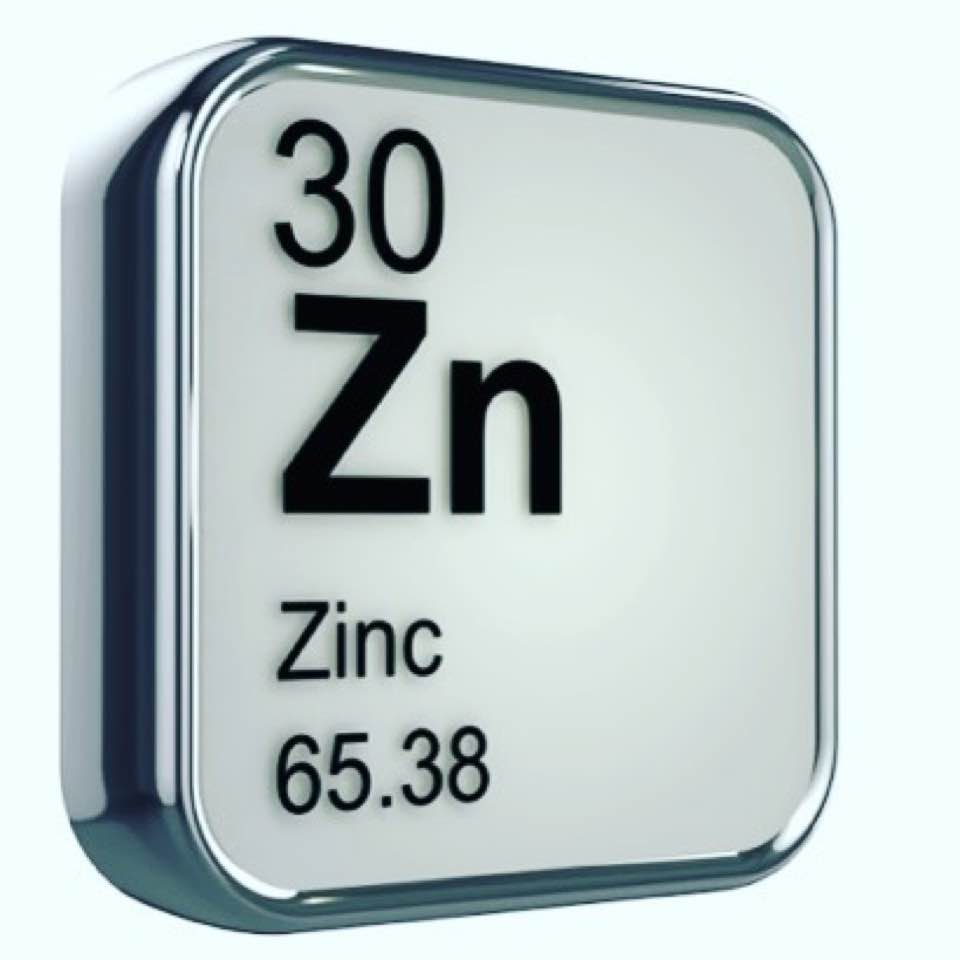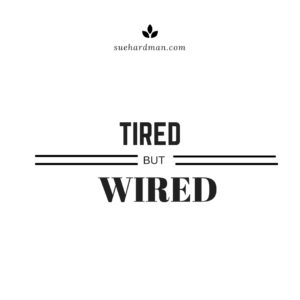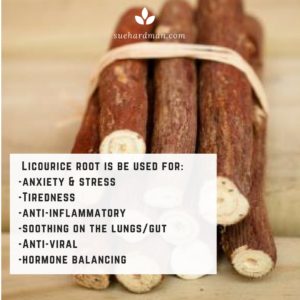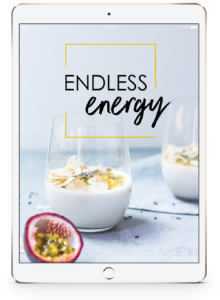🔥 Put Out The Fires To Defy Ageing & Aching
Are you investing in the best version of yourself for your next decade? This is a question I’m asking myself right now, before I turn 60.
It’s a decision we can all make about prioritising what is necessary for our version of self-care and embracing those steps needed to make those positive changes.
Making headlines in publications such as Newsweek and Time magazines, the term ‘silent or secret’ killer has highlighted the huge role that inflammation plays in almost all diseases.
What is inflammation?
It’s your body’s first defence against infection, and it’s a natural part of the body’s healing process but when it goes wrong, it can upset the delicate balance whether it's your nervous , digestive, respiratory or heart systems and your hormones.
It’s the difference between a campfire that’s meant to provide warmth on a chilly night and a forest fire that’s out of control, ravaging everything its path.
Low-grade inflammation is rapidly becoming recognised as the root cause of cognitive decline, as well as other serious health problems. When inflammation is out of control, you age faster.
Managing the fires of inflammation is one of the single most effective things you can do to slow down the biological clock and feel stronger as you age.
According to Jeffrey Bland, Ph.D., women's immune systems display heightened responsiveness to fluctuations in hormones such as oestrogen, progesterone, and testosterone. These hormonal changes significantly influence immune activation and inflammation.
Bland further explains that this heightened reactivity in a woman's immune system makes her potentially more susceptible to environmental factors that can trigger immune responses and subsequent inflammation. These factors may include toxins, chemicals, chronic infections, and injuries.
Acute inflammation fades quickly while chronic inflammation can persist for weeks, months, or even years.
Chronic inflammation is like having a silent, raging, forest fire inside your body with nothing to extinguish it.
7 ways inflammation can damage your body:
- Memory loss and cognitive decline
- Increased cardiovascular risk
- Joint pain and loss of mobility
- Allergies and breathing discomfort
- Accelerated skin ageing and wrinkles
- Compromised digestive function
- Weight gain and loss of muscle tone
Remember, even the smallest steps can lead to significant improvements in your overall well-being. So, let's embark on a transformative path together, and empower you so you can thrive!
Unravelling Chronic Inflammation: The Signs, Symptoms & Solutions
Importantly, the presence of excess inflammation in the body isn't limited to those with diagnosed chronic conditions.
Subtle symptoms can serve as indicators of underlying inflammation, even when individuals may not recognise it.
→ These are all common signs of inflammation! ←
- Irregular menstrual periods
- Challenging menopausal transitions
- Frequent headaches
- Feelings of depression, mood swings, anxiety
- Joint pain
- Sleep disturbances
- Skin rashes
- Irritable bowel syndrome
- Age-related muscle loss, clinically known as sarcopenia
- Feeling tired all the time
- Recurrent infections
- Inflammation is the root causes of many disorders - PCOS, Hashimoto’s, diabetes, obesity, IBD, skin and other autoimmune conditions.
With acute inflammation (temporary due to injuries), body can repair itself quickly but when it gets chronic, that's when diseases occur.
Medications can only alleviate symptoms BUT they are NOT a cure.
This One Thing That Might Be the FUEL the Fire of Your Inflammation!
Stress!! it has a profound impact on our immune system and inflammatory response. Whether it's acute or chronic, stress, triggers physiological changes that can contribute to increased inflammation in the body.
How Stress Fuels Inflammation:
Inflammation: Stress triggers the release of the stress hormones like cortisol and adrenaline, which, when persistent, can lead to chronic inflammation, making us more susceptible to infections and diseases.
Gut-Brain Axis Disruption: Stress can disrupt the gut-brain axis, impacting our gut microbiota and leading to "leaky gut," triggering immune responses and fueling inflammation.
Oxidative Stress: Chronic stress contributes to oxidative stress, this is an imbalance between free radicals and antioxidants that damages cells and tissues, promoting inflammation and chronic diseases.
Unhealthy Lifestyle Choices: Stress can lead to unhealthy habits like overeating, consuming junk foods, smoking, and excessive alcohol intake, which further exacerbates inflammation and jeopardises our health.
The Silver Lining: Taking Charge of Stress and Inflammation!
So what can you do?
Nourish Your Body with an Anti-Inflammatory Diet: A diet rich in whole foods, antioxidants, and omega-3 fatty acids helps combat inflammation and supports a healthy immune system.
Avoid these common inflammatory foods: Sugar, Gluten, Soy & Corn, Trans-fats,Dairy, Nightshades. This is very individual to each person.
What you eat can either fuel the fire or cool it down.
Engage in Regular Physical Activity: Exercise helps release endorphins, reducing stress and inflammation while promoting overall well-being.
Suffering with any of the signs of inflammation?
Where are you at there moment?
➝ Option 1: Continue to do nothing.
It's tempting to ignore the signs and hope they'll disappear on their own. But here's the truth: if you leave inflammation untreated it can impact your overall well-being and quality of life and it’s likely it’ll get worse.
➝ Option 2: Treat yourself.
Taking matters into your own hands is a brave and empowering step. You always have the option to educate yourself about inflammation and make positive lifestyle changes. With a DIY approach the symptoms get addressed but NOT the root cause, meaning the underlying issue is still there.
Like taking antacids for heartburn but not addressing the underlying reason you have this.
Or painkillers every time you get a headache and not understanding what’s causing your headache.
➝ Option 3: Get help.
Sometimes, seeking professional guidance to tackle inflammation – look at the root cause, so you can get personalised treatment options.
Get the help you need to navigate through the complexities of your condition and develop a targeted plan for your well-being.
Take the First Step Towards Healing!
Book a Discovery Call: If you resonate with any of these signs, let's embark on a journey together. Our discovery call is an opportunity to explore your unique health concerns and create a personalised plan to tackle inflammation head-on!
Send me an email at sue@suehardman.com so we can set a time for discovery call to see whether I can help you.

